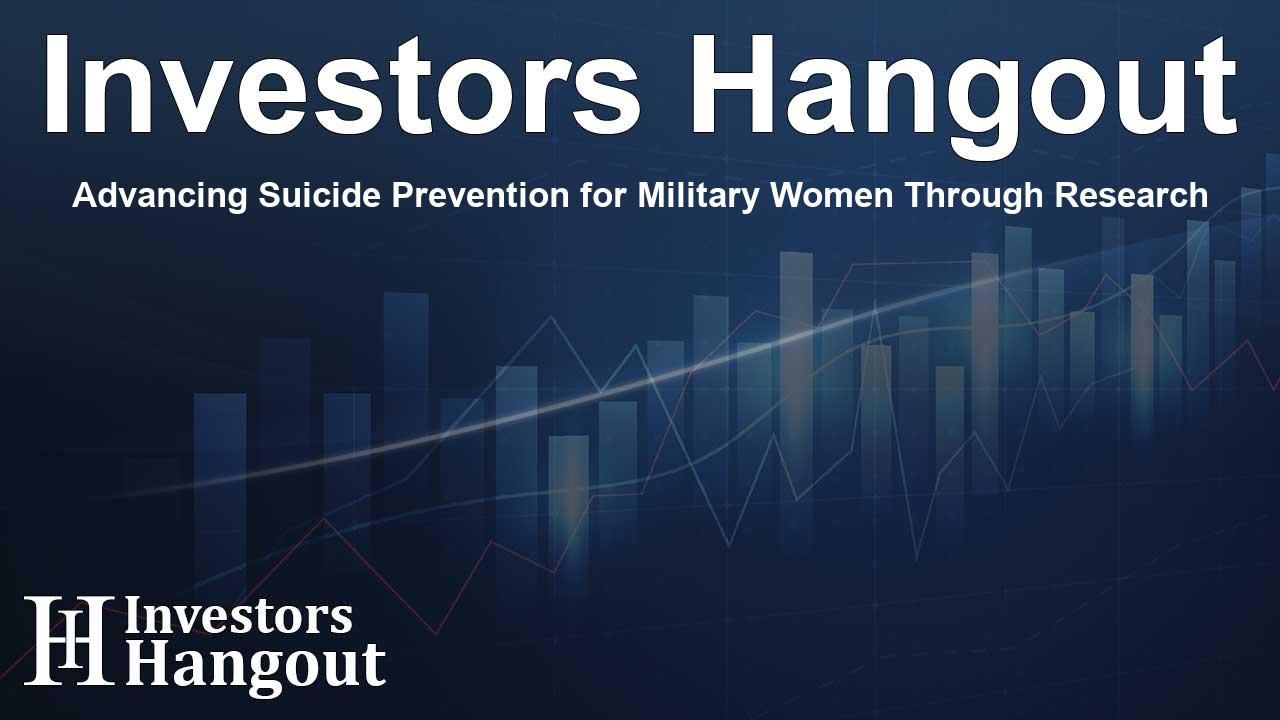Advancing Suicide Prevention for Military Women Through Research

Understanding the Importance of Tailored Suicide Prevention
Suicide prevention remains a critical issue, especially among those connected to the military, including women veterans and active-duty service members. Recent research from Cohen Veterans Network (CVN) emphasizes the need for strategies that cater specifically to the unique challenges faced by these groups.
Key Insights from CVN's Latest Report
Cohen Veterans Network's report serves as a crucial resource, shedding light on the pressing need for enhanced lethal means safety counseling for military-affiliated women. This research highlights the gaps in existing suicide prevention efforts, which have often adopted a one-size-fits-all approach. The statistics reveal alarming trends, particularly around firearms, which are frequently involved in suicide attempts among this demographic.
The Unique Risks Faced by Military Women
It's essential to understand that military women often deal with distinct issues that contribute to their mental health struggles. Factors such as intimate partner violence (IPV) and military sexual trauma (MST) elevate their suicide risk significantly. The report's findings indicate that current guidelines for lethal means safety counseling do not adequately address these complexities, leading to a crucial oversight in suicide prevention tactics.
Addressing Misconceptions in Care
One of the key highlights from the analysis is the prevalent misconceptions surrounding suicide risk factors. Enhanced training for clinicians can play a pivotal role in refining care for women veterans. This training should focus on gender-specific risk factors and improve screening processes to include assessments of firearm access rather than mere ownership.
Bridging Cultural Gaps in Firearm Familiarization
The disconnect between clinicians' knowledge of firearm safety and the realities faced by military women can significantly hinder effective counseling. A better understanding of their practices and beliefs is necessary to develop effective support systems that align with their experiences.
Overcoming Barriers to Care
Women veterans often encounter systemic obstacles that make accessing care a challenge. Fears surrounding firearm restrictions can deter them from seeking help. CVN’s report advocates for public health initiatives, including awareness campaigns specifically designed to reach military-affiliated women, addressing their needs directly and effectively.
Innovative Solutions in Suicide Prevention
CVN's commitment to addressing these challenges has led to plans for creating training modules focused on suicide prevention and lethal means safety specifically designed for clinicians working with military women. This initiative aims to provide free resources that promote informed, compassionate care.
A broader Initiative for Mental Health Support
The collaboration between CVN and partners like USAA signifies a broader commitment to reducing veteran suicide through innovative practices and community engagement. This partnership underscores the importance of addressing the unique needs and mental health challenges of military women.
The Path Toward Effective Interventions
The challenges documented in the CVN report illustrate the urgent need for tailored approaches that consider the multifaceted experiences of military-affiliated women. With targeted solutions and dedicated resources, mental health outcomes can improve significantly, ensuring that the safety and well-being of these women remain a priority.
Frequently Asked Questions
What is the focus of the Cohen Veterans Network's report?
The report concentrates on improving suicide prevention strategies for military-affiliated women, particularly in lethal means safety counseling.
Why are military women at higher risk for suicide?
Military women face unique challenges, including issues like intimate partner violence and military sexual trauma, which increase their suicide risk.
What are the gaps identified in current suicide prevention strategies?
Many strategies adopt a gender-neutral approach, failing to address the specific needs and experiences of military-affiliated women.
How is CVN addressing these gaps?
CVN is developing evidence-informed training modules and launching awareness campaigns to improve care and outreach for military women.
What role do partnerships play in this initiative?
Collaborations with organizations like USAA enhance the capacity to provide targeted solutions and support for female veterans, prioritizing their mental health.
About The Author
Contact Henry Turner privately here. Or send an email with ATTN: Henry Turner as the subject to contact@investorshangout.com.
About Investors Hangout
Investors Hangout is a leading online stock forum for financial discussion and learning, offering a wide range of free tools and resources. It draws in traders of all levels, who exchange market knowledge, investigate trading tactics, and keep an eye on industry developments in real time. Featuring financial articles, stock message boards, quotes, charts, company profiles, and live news updates. Through cooperative learning and a wealth of informational resources, it helps users from novices creating their first portfolios to experts honing their techniques. Join Investors Hangout today: https://investorshangout.com/
The content of this article is based on factual, publicly available information and does not represent legal, financial, or investment advice. Investors Hangout does not offer financial advice, and the author is not a licensed financial advisor. Consult a qualified advisor before making any financial or investment decisions based on this article. This article should not be considered advice to purchase, sell, or hold any securities or other investments. If any of the material provided here is inaccurate, please contact us for corrections.
